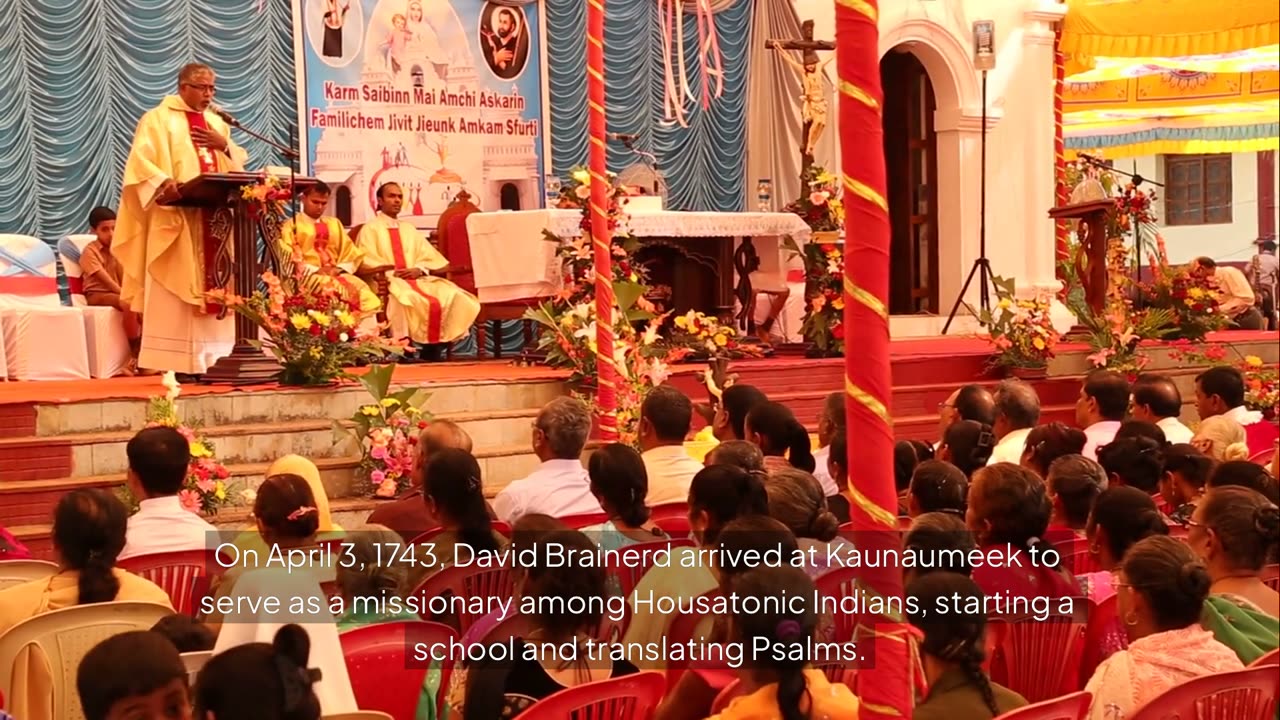Premium Only Content

April 3rd in Christ
On April 3, 1189, the Peace of Strasbourg was signed, resolving differences between Emperor Frederick Barbarossa of Germany and Pope Clement III.
This agreement was crucial for medieval church politics, easing tensions between secular and ecclesiastical powers, impacting the Church’s influence in Europe.
On April 3, 1229, Abraham of Bulgaria, while living as an Islamic merchant, converted to Christianity and was killed by Muslims for changing religions.
This martyrdom highlights the spread of Christianity into Islamic regions and the challenges faced by converts, reflecting the tensions between Christian and Islamic communities in the medieval period.
On April 3, 1253, Bishop Richard of Chichester died, having suffered persecution from King Henry III but beloved by his people.
His legacy as a faithful leader, despite political opposition, is significant for understanding medieval church leadership and its societal impact.
On April 3, 1375, Catherine of Siena, an Italian mystic, received the stigmata, visible only to herself.
She persuaded Pope Gregory XI to return to Rome and was declared a doctor of the church in 1970 by Pope Paul VI, influencing Catholic mysticism and church reform.
On April 3, 1868, the Hampton Institute opened in Virginia, training freed slaves “hand, head, and heart” (vocation, academics, faith).
This educational initiative, rooted in Christian values, was significant for post-Civil War African American education and faith development.
On April 3, 1528, Adolf Clarenbach was arrested in Cologne for teaching Protestant (possibly Anabaptist or Waldensian) doctrines, later burned at the stake in 1529.
This martyrdom highlights early Reformation persecution, a lesser-known but significant moment in Protestant history.
On April 3, 1593, George Herbert, an English clergyman and poet, was born in Montgomery Castle.
He quit politics to become rector of rural Bremerton, died of tuberculosis, and gained fame posthumously for works like:
"The Temple: Sacred Poems and Private Ejaculations" and the hymn "The King of Love My Shepherd Is," significant for Anglican and Protestant worship.
On April 3, 1739, John Wesley first preached in the open air to miners at Kingswood, England, freeing him from dependence on Church of England pulpits.
This event was pivotal for Methodism, enabling its spread outside traditional church structures, a key development in Protestant evangelicalism.
On April 3, 1743, David Brainerd arrived at Kaunaumeek to serve as a missionary among Housatonic Indians, starting a school and translating Psalms.
His work was significant for American evangelicalism, inspiring later missionaries like William Carey.
On April 3, 1759, John Newton wrote in a letter, stating "I believe that love to God, and to man for God's sake, is the essence of religion."
This reflects his evangelical theology, significant for Protestant thought, given his role in writing "Amazing Grace."
On April 3, 1769, Gerhard Tersteegen, a Pietist preacher and hymnwriter, died in Mülheim, known for the hymn "Thou hidden love of God."
His work enriched Protestant hymnody, particularly in Pietist circles.
On April 3, 1826, Reginald Heber, an Anglican hymnwriter, died in India, with hymns like "Holy, Holy, Holy" and "From Greenland's Icy Mountains" published posthumously in 1827.
This is significant for Anglican and Protestant worship traditions.
On April 3, 1787, Richard Allen, an ex-slave and African-American preacher, organized the Free African Society, a self-help and mutual aid organization.
This event is notable for Protestant history, particularly in African American church development.
On April 3, 1927, Eurovision was founded in Chicago as a Protestant overseas missions agency, today headquartered in Pasadena, CA, supporting national churches via radio, literature, and relief work.
This is significant for modern Protestant mission work.
On April 3, 1950, Ira B. Wilson, an American hymnwriter associated with Lorenz Publishing, died at age 70, known for "Make Me a Blessing."
This contributed to Protestant hymnody, particularly in evangelical circles.
On April 3, 1956, William R. Newell, an American Congregational pastor and Bible teacher, died at age 88, author of the hymn “At Calvary” (“Years I Spent in Vanity and Pride”).
This enriched Protestant worship traditions.
1 Corinthians 10:13 - There hath no temptation taken hold of you but such as is common to man. But God is faithful; He will not suffer you to be tempted beyond that which ye are able to bear, but with the temptation will also make a way to escape, that ye may be able to bear it.
God bless you in Jesus Christ today!
-
 LIVE
LIVE
Nerdrotic
2 hours agoWB Sale is Hollywood's DOOM! | Stranger Things REVIEW | BBC Get's F*%#@! - Friday Night Tights 382
7,714 watching -
 1:05:35
1:05:35
Russell Brand
4 hours agoMAHA Summit: Comedy, Controversy & Clarity - SF656
47.2K20 -
 49:45
49:45
Liberty Hangout
1 day agoThe Left HATES America and Can't Change My Mind!
63.8K84 -
 23:42
23:42
The Kevin Trudeau Show Limitless
2 days agoThe Brotherhood’s Ancient Mirror Code Revealed
24.1K12 -
 10:18
10:18
Colion Noir
5 hours agoViral TikTok Proves Gun Owners Wrong?
31.3K34 -
![MAHA News [11.28] Team MAHA Dropping Bombs, Pesticide Fight, Campbell's Soup Outed, Save Ranchers](https://1a-1791.com/video/fwe2/11/s8/1/O/6/L/D/O6LDz.0kob-small-MAHA-News-11.28.jpg) LIVE
LIVE
Badlands Media
15 hours agoMAHA News [11.28] Team MAHA Dropping Bombs, Pesticide Fight, Campbell's Soup Outed, Save Ranchers
470 watching -
 1:01:18
1:01:18
DeVory Darkins
4 hours agoBREAKING: Trump issues fatal update to National Guard shooting
114K76 -
 49:57
49:57
The Quartering
4 hours agoTrump UNLOADS, Walmart Black Friday Madness & Trans Taco Bell Attack
24.6K35 -
 39:51
39:51
Tucker Carlson
4 hours agoGeorge Galloway Speaks Out on Being Forced Into Exile After Criticizing Ukraine War
39.7K101 -
 21:23
21:23
Neil McCoy-Ward
3 hours ago🔥 While You're Working Hard... They're Planning To Take EVERYTHING From You!!!
12.1K11